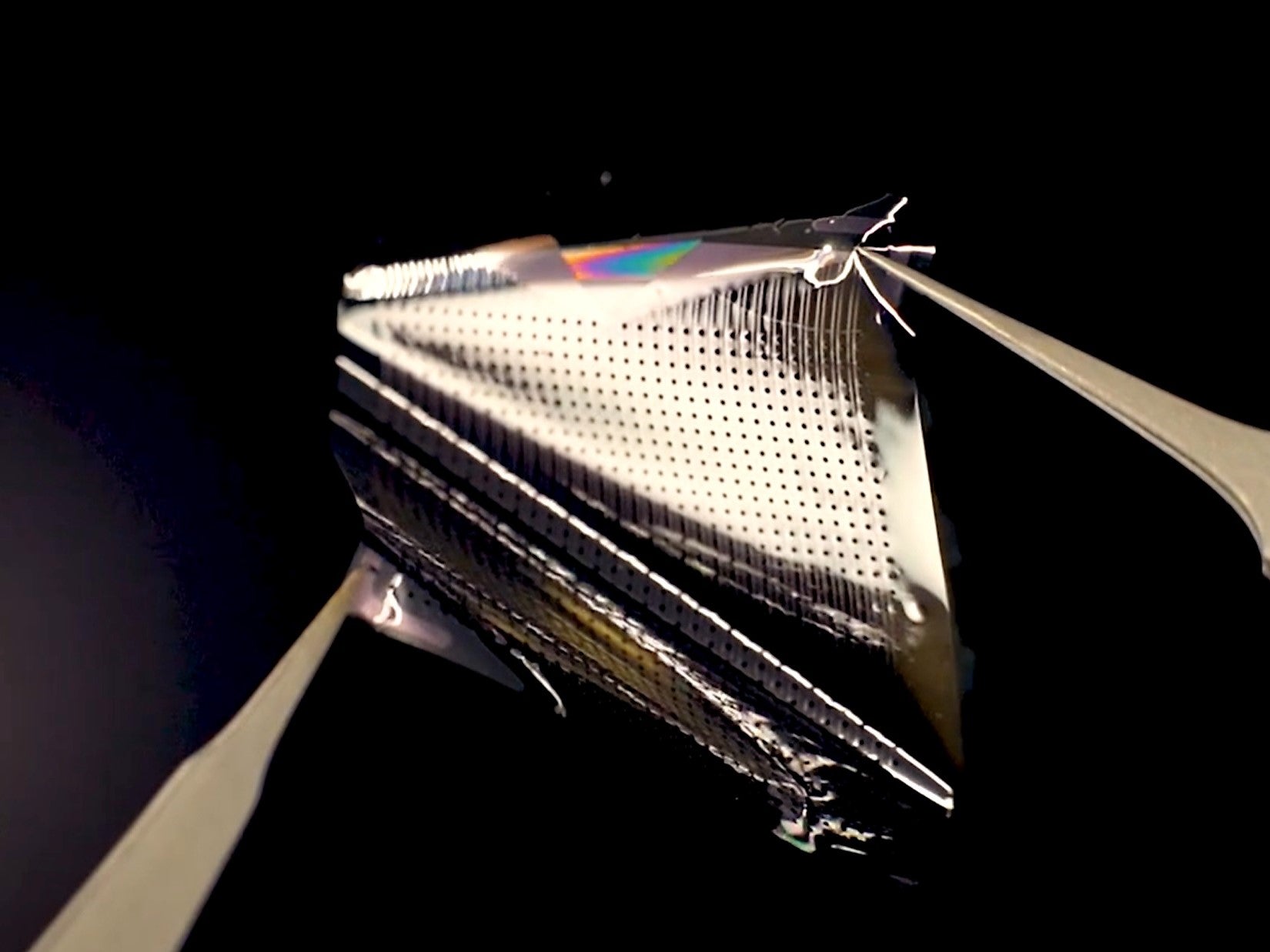Brain device records activity in record-breaking detail
Research could lead to breakthroughs in the emerging field of brain-computer interfaces

Researchers have built a sensor capable of recording signals from the human brain in record-breaking detail, opening up new possibilities for brain-computer interfaces.
A team of engineers and surgeons, led by University of California San Diego professor Shadi Dayeh, used a densely packed grid embedded with thousands of electrocorticography (EC0G) sensors to allow them to read activity from the brain’s cortex in 100 times higher resolution than existing technologies.
The thin and flexible array, measuring three-centimetres-by-three-centimetres, offers a highly detailed perspective on specific parts of the brain, which could have profound implications if approved for clinical use.
Early applications could include surgeons receiving ultra clear brain signal information, providing better guidance for removing tumours without damaging healthy tissue, as well as surgically treating drug-resistant epilepsy.
Longer-term, the brain device could be used as a permanent wireless implant to assist people living with paralysis or other neurodegenerative diseases like Parkinson’s, which can be treated with electrical stimulation.
Beyond that, the ECoG technology could be developed for use in the emerging field of brain-computer interfaces, which have a huge range of potential applications – from controlling a computer just by thinking, to streaming music directly to your brain.
By uncovering new knowledge about how the brain works, for example, the device could be used to interpret hand motions in new ways utilising brain wave patterns.
One of the most high-profile companies working on brain-computer interface technology is Elon Musk’s Neuralink startup, which aims to commence human trials of its chip later this year.
Professor Dayeh’s team has already tested the ECoG device on 19 people, who agreed to be part of the research during the “downtime” of their already scheduled brain surgeries.
The next step is to conduct a clinical trial of the technology, which will be funded by a $12.25 million grant awarded to the scientists.
The research was published this week in the journal Science Translational Medicine.

Join our commenting forum
Join thought-provoking conversations, follow other Independent readers and see their replies
Comments